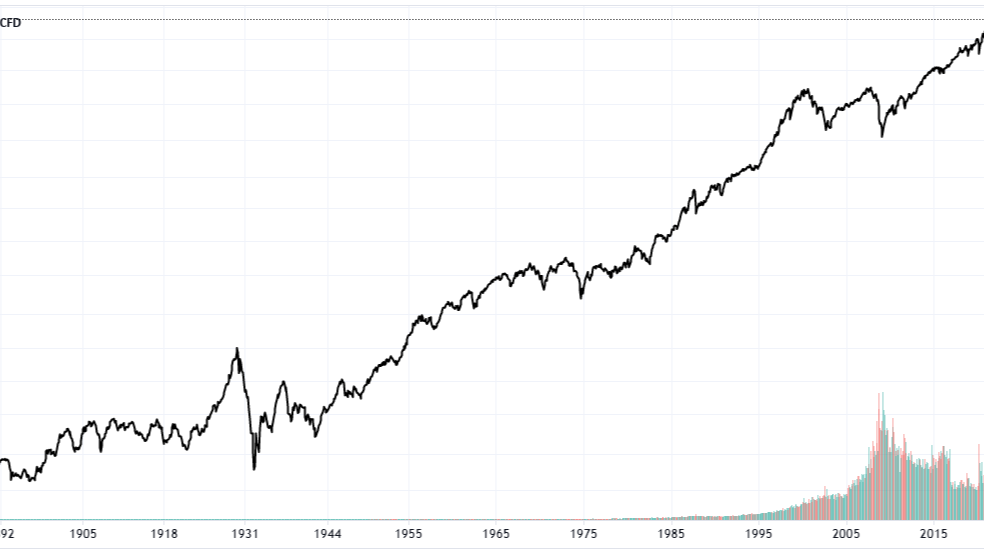“You see what Biggie saw Friday,” asked Biggie Too, slipping right into 3rd person, summer behind, autumn ahead. Fall. “The lazy bulls, the re-accelerationists, they caved, Biggie saw it,” continued the Global Chief Strategist for one of Wall Street’s Too-Big-To-Fail affairs. “You got no growth in Europe, Japan, China is just terrifying, Germany too,” barked Biggie. “Jerome gonna cut rates quick enough to save small businesses?” demanded Too. I shrugged. Small businesses borrow at the Prime Rate (8.5%). With inflation around 3%, real borrowing rates are 5.5%. “Jerome gonna get ahead of this? Because right now he’s behind it,” bellowed Biggie. “And companies are now paralyzed until after the elections.”
Overall: “I was a big advocate of front-loading rate hikes when inflation accelerated in 2022, and I will be an advocate of front-loading rate cuts if that is appropriate,” said Federal Reserve Governor Waller on Friday, equity markets under pressure, another tremor. It had been a wild August. They often are. And no one likes to appear to be panicking. Least not central bankers. So, when stock markets shook and volatility exploded early in the month on the back of softening US economic data and concerns the Bank of Japan was going to finally kill the yen carry trade, Chairman Powell feigned calm to the cameras, praying quietly, his sweaty finger on the big green print button. “If the data supports cuts at consecutive meetings, then I believe it will be appropriate to cut at consecutive meetings,” continued Waller. Powell had given the all-clear for interest rate cuts in his August speech in Jackson Hole. That Economic Symposium started in the late 1970s, and its Kansas City Fed organizers moved it to Jackson Hole in 1982 to attract Paul Volcker, a public servant of unusual courage, who loved fly fishing. “The truly unique power of a central bank, after all, is the power to create money, and ultimately the power to create is the power to destroy,” said Volcker back in those days, the Snake River winding its way along the valley, the timeless Tetons unmoved by monetary policy, money supply, the ebb and flow of political parties. Volcker was despised in his time, a black hat, even as we became stronger, our better selves. Back in August 1982, the US Debt-to-GDP ratio was 34%, the unemployment rate was 9.8%, the deep recession nearly over, the great inflation conquered, decades of prosperity ahead. “If the data suggests the need for larger cuts, then I will support that as well,” said Governor Waller, our nation’s Debt-to-GDP ratio now 121%, the budget deficit at an unprecedented altitude outside of wartime, interest expense soaring, employment conditions softening, a national crisis of leadership manifesting, the first stage of our post-pandemic inflationary cycle drawing to a volatile close. The Tetons bearing witness, unmoved.
Week-in-Review: Mon: US holiday – quiet markets, China warns Japan of retaliation over potential new chip curb, Volkswagen considering closing factories in Germany, Japan 2Q capital spending 7.4% (10.0%e), China Caixin mfg PMI 50.4 (50e), Indonesia CPI 2.12% (2.10%e) / Core CPI 2.02% (2.0%e), Turkey 2Q GDP 2.5% (3.2%e), EU final mfg PMI 45.8 (45.6e), Germany ret sales -1.1% (-0.7%e), S&P closed; Tue: Mexico supreme court justices join strikes to protest judicial reform, Chile CB cuts 25bp as exp, Biden/Harris call for US Steel to remain domestically owned – increasing risk of blocking Nippon deal, Venezuela’s Madura arrests opposition candidate, S. Korea CPI 2% (2.1%e), Turkey CPI 51.97% (51.86%e) / Core 51.56% (50.10%e), S. Africa 2Q GDP 0.3% as exp, Mexico unemp 2.93% (2.98%e), Brazil 2Q GDP 3.3% (2.7%e), US final mfg PMI 47.9 (48e), US ISM mfg 47.2 (47.5e) / prices paid 54 (52e), S&P -2.0%; Wed: Tech sector suffers amid DOJ antitrust subpoenas sent to firms including NVDA, BOC cuts 25bp as exp, Harris reported to pull back Biden’s capital gains tax proposal, Australia 2Q GDP 1% (0.9%e), China services Caixin PMI 51.6 (51.8e) / composite 51.2 (51.2p), EU final serv PMI 52.9 (53.3e) / comp 51 (51.2e), EU PPI -2.1% (-2.5%e), Brazil IP 6.1% (6.7%e), US JOLTS job openings 7.673m (8.1m exp), US factory orders 5% (4.9%e), Harris plans 28% long-term capital gains tax up from 20% now (tempering Biden tax plan), S&P -0.1%; Thu: Macron names Michel Barnier (Brexit negotiator and center-right) French PM, UK Business inflation expectations hit 3.5yr low of 3.4%, US ISM Services +0.1 to 51.5, UK homebuilding hits 2yr high, Turkey forecasts 2025 GDP of 4.0% (consensus 3.3%) with inflation now at 52%, Putin claims to be pushing Ukraine forces out of Kursk, OPEC close to postponing production increase for 2mths, initial jobless claims fall to 2mth low of 227k, ADP private sector jobs fall to 3.5 yr low of 99k (wage gains flat at +4.8%), BOJ’s Takata highlighted the need for another rate hike after real wage growth unexpectedly picked up, Japan real cash earnings 0.4% (-0.6%e), Germany factory orders 3.7% (-1.9%e), EU ret sales -0.1% (0.2%e), US final serv PMI 55.7 (55.1e) / comp 54.6 (54e), US ISM Serv 51.5 (51.4e) / prices paid 57.3 (56e), S&P -0.8%; Fri: US NFP 142k (165k exp) / unemp 4.2% as exp / AHE 3.8% (3.7%e), Fed’s Williams says appropriate to lower rates this month / Waller says current batch of data requires action and will advocate for ‘front-loading’ cuts if appropriate, Blinken says new ceasefire deal to be presented in coming days, former PBOC gov says China should focus on ending deflation, Japan leading index 109.5 (109.4e), Germany IP -5.3% (-3.5%e), France IP -2.2% (-0.9%e), Canada emp chg 22.1k (25k exp) / unemp 6.6% (6.5%e), S&P -1.7%.
Manufacturing PMI (high-to-low): India 57.5 (previous month 58.1), Greece 52.9 (previous month 53.2), Sweden 52.7 (previous 49.2), UK 52.5/52.1, Vietnam 52.4/54.7, Norway 52.13/59.8, Russia 52.1/53.6, South Korea 51.9/51.4, Taiwan 51.5/52.9, Singapore 50.9/50.7, Spain 50.5/51, South Africa 50.5/49.3, China 50.4/49.8, Brazil 50.4/54, Japan 49.8/49.1, Canada 49.5/47.8, Italy 49.4/47.4, Hong Kong 49.4/49.5, Switzerland 49/43.5, Indonesia 48.9/49.3, Mexico 48.5/49.6, Poland 47.8/47.3, Turkey 47.8/47.2, Netherlands 47.7/49.2, Hungary 47.6/48.8, US 47.2/46.8, Czech Republic 46.7/43.8, Austria 44.4/43.1, France 43.9/44, Germany 42.4/43.2. Services PMI: India 60.9/60.3, US 55.7/55, France 55/50.1, Spain 54.6/53.9, Brazil 54.2/56.4, Ireland 53.8/53.6, UK 53.7/52.5, Japan 53.7/53.7, Sweden 52.9/53.8, Australia 52.5/50.4, Russia 52.3/51.1, China 51.6/52.1, Italy 51.4/51.7, Germany 51.2/52.5.
Weekly Close: S&P 500 -4.2% and VIX +7.38 at +22.38. Nikkei -5.8%, Shanghai -2.7%, Euro Stoxx -3.5%, Bovespa -1.1%, MSCI World -3.9%, and MSCI Emerging -2.3%. USD rose +7.6% vs Bitcoin, +7.1% vs Ethereum, +3.7% vs Chile, +1.4% vs Australia, +1.3% vs Mexico, +0.6% vs Canada, +0.3% vs Sweden, +0.2% vs South Africa, +0.1% vs China, and +0.1% vs India. USD fell -2.6% vs Yen, -0.6% vs Indonesia, -0.3% vs Euro, -0.3% vs Turkey, -0.1% vs Brazil, flat vs Sterling, and flat vs Russia. Gold -0.1%, Silver -3.3%, Oil -8.0%, Copper -3.3%, Iron Ore -7.9%, Corn +1.3%. 10yr Inflation Breakevens (EU -5bps at 1.73%, US -12bps at 2.04%, JP -2bps at 1.30%, and UK -5bps at 3.35%). 2yr Notes -27bps at 3.65% and 10yr Notes -19bps at 3.71%.
2024 Year-to-Date Equity Index Close: Argentina +56.9% priced in US dollars (+85.2% priced in pesos), Malaysia +20.5% priced in US dollars (+13.6% in ringitt), Denmark +16.6% in dollars (+16.6% in krone), Hungary +15.8% (+19.3%), Taiwan +14.5% (+19.5%), Turkey +13.7% (+30.8%), S&P 500 +13.4% in dollars, India +13.3% (+14.4%), Belgium +12.6% (+12.5%), Netherlands +11.9% (+11.8%), Greece +11.7% (+11.6%), NASDAQ +11.2% in dollars, Czech Republic +11.2% (+12.6%), MSCI World +11% in dollars, Spain +10.7% (+10.6%), Italy +9.8% (+9.7%), Ireland +9.4% (+9.3%), Germany +9.4% (+9.3%), UK +8.8% (+5.8%), Singapore +7.9% (+6.6%), Japan +7.5% (+8.7%), South Africa +7.1% (+4.8%), Israel +6.4% (+9.8%), Switzerland +6.4% (+6.9%), Philippines +6% (+7.5%), Poland +5.8% (+4.2%), Canada +5.8% (+8.7%), Indonesia +5.7% (+6.2%), Euro Stoxx 50 +4.9% (+4.8%), Austria +4.4% (+4.3%), New Zealand +4.2% (+7.2%), Russell +3.2% (+3.2%), Australia +3% (+5.6%), Colombia +2.7% (+11.2%), HK +2.5% (+2.3%), Norway +2.3% (+8.5%), Thailand +2.1% (+0.8%), Saudi Arabia +1% (+1.1%), Sweden +0.9% (+3.5%), UAE -1.4% (-1.4%), Portugal -1.8% (-1.9%), Finland -2% (-2.1%), France -2.4% (-2.5%), Chile -6.2% (+0.8%), China -7% (-7%), Korea -7.8% (-4.2%), Brazil -12.9% (+0.3%), Mexico -24.5% (-11%).
Real Rates: “Expect a harder landing than what’s priced in,” said the global chief strategist. “Mortgage rates have come lower, yet housing remains pinned to the mat,” he continued. “We’ve had an economy supported by a lot of fiscal stimulus, and it’s not there to the same degree,” he said. “Then there’s the Sahm Rule, the historic yield curve inversion, commodity market weakness. And nothing good happens with real rates this high,” he said. “If labor market softness continues at this pace for a few more months, we’ll discover that we have a real problem.”
Realtor.com: “The number of homes actively for sale continues to be elevated compared with last year, growing by 35.8%, a 10th straight month of growth, and now sits at the highest since May 2020,” reported Realator.com in their Sept 5th report. “The total number of unsold homes, including homes that are under contract, increased by 20.9% compared with last year. Home sellers slowed down their listing activity in August, with -0.9% fewer homes newly listed on the market compared with last year. This is the first negative reading in nearly a year.”
Realtor.com II: “The median price of homes for sale this Aug decreased by 1.3% compared with last year, at $429,990,” continued the report. “However, the median price per sq ft grew by 2.3%, indicating that the inventory of smaller and more affordable homes continues to grow in share. Homes spent 53 days on the market, the slowest August in five-years. This is 7-days more than last year and 3-days more than July. The share of listings with price cuts reached the highest for an August in over five-years, increasing by 3.1 percent compared with last year to 19.3%.”
Sparks: “The big story continues to be the AI theme,” said Sparks, an investor, business builder, iconoclast. I’d called to check in on the latest in AI. He was early to the theme, as usual, and has been racing to build out the energy infrastructure to support this new form of intelligence. “The AI portfolio is very heavy now. It’s harder to make money in equities than it has been. But there is so much capex that must occur that it’s hard to crush the economy. Capex is fairly equitized though, not built on a mountain of debt. So, it’s hard to get super bearish even in a slow-down.”
Sparks II: “AI is the most important thing on so many modalities, but it’ll take a long time to flesh out what the real possibilities are and how they will impact society and the economy,” continued Sparks. “There are easy predictions and hard ones. An easy one is that people will not be able to believe anything they see on the internet, and we’re nearly there,” he said. “Will the benefits of AI outrun the negatives? We won’t really know for 5yrs or more. And the negatives to AI are mostly front-loaded, while the positives are backloaded. That’s actually a big problem.”
Sparks III: “Much of the negative stuff that affects civil discourse, the information economy, that’s coming fast,” said Sparks. “While the benefits, like healthcare, biotech, bioengineering, are all going to take years. So, there is an intertemporal problem. There’s almost a guarantee that it’ll be bad before it gets good,” he said. “The negatives will outweigh the positives in the short-term. And the real question is can you get past the short term? Can you hold civil society together long enough to get to the positives? To the point where the negative/positive dynamics flip.”
Anecdote: “At first we despised the Black Hats with every ounce of our beings,” said Liv, the ceremony over. She had just completed Air Assault School, the toughest ten days of training in the Army [here]. Air Assault teaches our young men and women to push themselves to the physical limit while paying close attention to the minute details necessary to safely lift heavy loads with attack helicopters, rappel from the sky, the rotors deafening, officers screaming orders, maintaining calm in the chaos. Between 30-50% of those who elect to enroll in Air Assault School fail. “The Black Hats watched our every move, they smoked us - push-ups, sit ups, pull-ups, planks, sprints - for the smallest reason, for anything really, and every single day they cut more of us from the program,” she said. “My roommate collapsed of heatstroke this morning, with a few hundred yards to go in our final 12-mile ruck, carrying a 40-pound pack in brutal heat. They rushed her to hospital. Didn’t make an exception, she got cut.” The fierce beauty of consequences. “She’s going to go back and do it again Dad, if she can finish the ruck next time, they’ll pass her,” said Liv, upbeat, confident in her friend’s determination, proud of her. “As the days passed, and we felt ourselves getting stronger, physically, mentally, we came to respect the Black Hats for what they were helping us become.” Mara and I had driven up to West Point for the Air Assault graduation ceremony. I pined the Black Wings on her fatigues, a field of parents doing the same, huddled in small groups of family and friends, another brief stop on the long gray line, the air electric, the next generation rising, a brighter future. “Leadership is about caring for people. It requires empathy. And the way you really care for people is to hold them to the highest standards, help them achieve things that they don’t realize they’re capable of, help them understand who they are, push them to become their best selves.”
Good luck out there,
Eric Peters
Chief Investment Officer
One River Asset Management
Disclaimer: All characters and events contained herein are entirely fictional. Even those things that appear based on real people and actual events are products of the author’s imagination. Any similarity is merely coincidental. The numbers are unreliable. The statistics too. Consequently, this message does not contain any investment recommendation, advice, or solicitation of any sort for any product, fund or service. The views expressed are strictly those of the author, even if often times they are not actually views held by the author, or directly contradict those views genuinely held by the author. And the views may certainly differ from those of any firm or person that the author may advise, converse with, or otherwise be associated with. Lastly, any inappropriate language, innuendo or dark humor contained herein is not specifically intended to offend the reader. And besides, nothing could possibly be more offensive than the real-life actions of the inept policy makers, corrupt elected leaders and short, paranoid dictators who infest our little planet. Yet we suffer their indignities every day. Oh yeah, past performance is not indicative of future returns.





